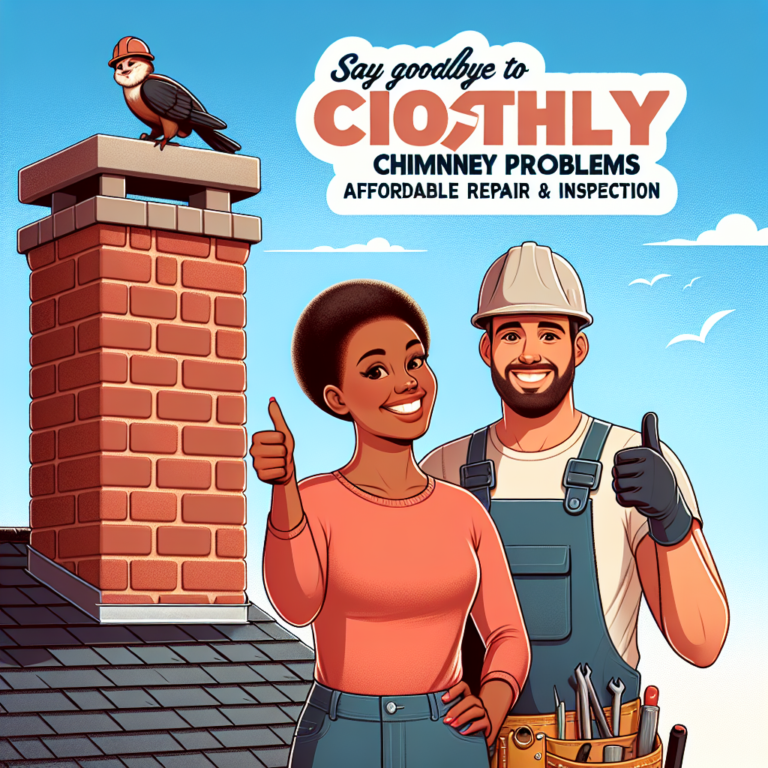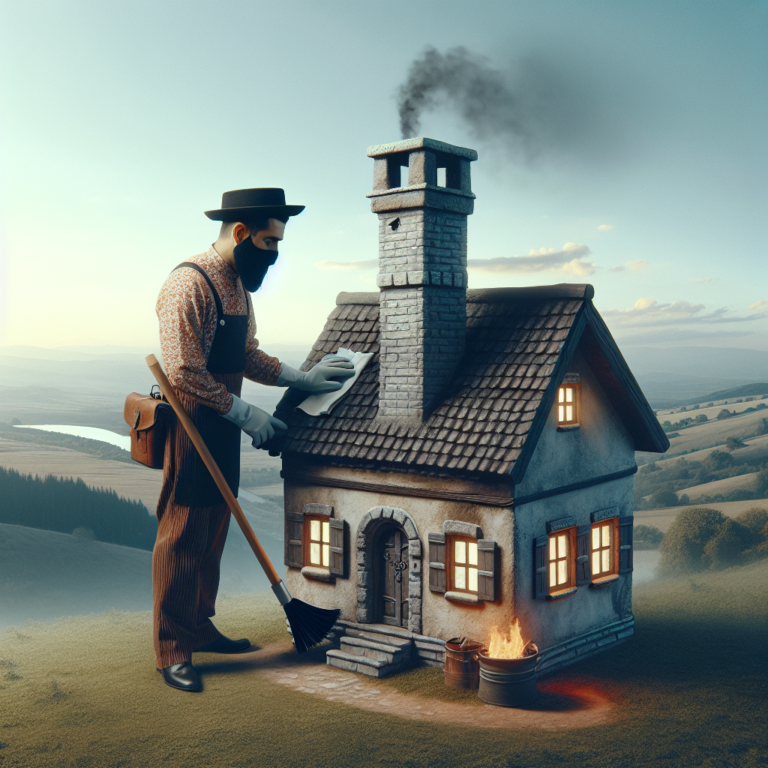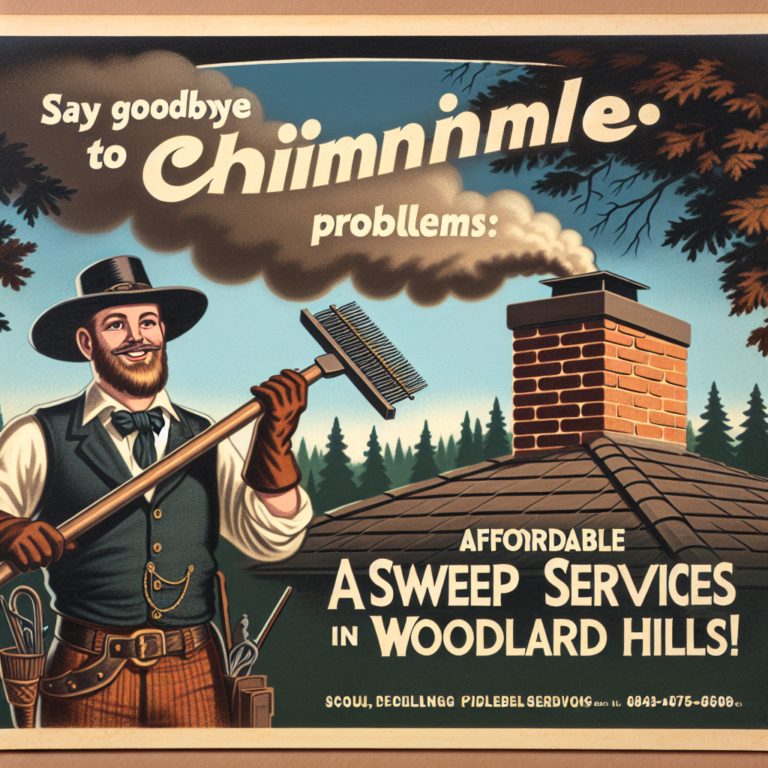-
Table of Contents
“Protecting your home and family with expert chimney care in Los Angeles.”
Stay safe from chimney fires—schedule your repair service now with Los Angeles Chimney Safety Pros. Click here to schedule your service.
5 Common Causes of Chimney Cracks and How to Prevent Them
Chimneys are an essential part of any home, providing warmth and comfort during the colder months. However, like any other structure, chimneys are susceptible to wear and tear, which can lead to cracks and other damages. These cracks not only compromise the functionality of the chimney but also pose a safety hazard to the household. As a homeowner in Los Angeles, it is crucial to be aware of the common causes of chimney cracks and how to prevent them. In this article, we will discuss the top five causes of chimney cracks and provide tips on how to keep your chimney in top condition.
1. Moisture
One of the leading causes of chimney cracks is moisture. When water seeps into the masonry, it can cause the bricks and mortar to expand and contract, leading to cracks. This is especially common in areas with heavy rainfall or high humidity levels, such as Los Angeles. Additionally, if the chimney does not have a proper cap or cover, rainwater can easily enter and cause damage. To prevent moisture-related cracks, it is essential to have a chimney cap installed and regularly inspect and repair any damaged or missing mortar.
2. Age and Wear
As with any other structure, chimneys also age and wear over time. The constant exposure to heat, smoke, and weather elements can cause the bricks and mortar to deteriorate, leading to cracks. This is especially true for older homes in Los Angeles, where the chimneys may not have been built to withstand the seismic activity in the region. Regular maintenance and inspections by a professional chimney sweep can help identify and address any signs of wear before they turn into significant cracks.
3. Poor Construction
In some cases, chimney cracks can be a result of poor construction. If the chimney was not built correctly or with subpar materials, it is more likely to develop cracks. This is why it is crucial to hire a reputable and experienced contractor when building or repairing a chimney. A well-constructed chimney will not only be more durable but also less prone to cracks and other damages.
4. Chimney Settlement
Chimney settlement occurs when the chimney foundation sinks or shifts, causing the chimney to crack. This can happen due to various reasons, such as soil erosion, seismic activity, or poor construction. If left unaddressed, chimney settlement can lead to significant structural damage and even collapse. Regular inspections and repairs by a professional can help identify and address any signs of chimney settlement before it becomes a safety hazard.
5. Creosote Buildup
Creosote is a highly flammable substance that accumulates in the chimney lining as a result of burning wood. If not regularly cleaned, creosote buildup can lead to chimney fires, which can cause severe damage to the chimney structure. These fires can also cause the chimney to expand and contract, leading to cracks. To prevent creosote buildup, it is crucial to have your chimney cleaned and inspected at least once a year by a certified chimney sweep.
In conclusion, chimney cracks can be caused by various factors, including moisture, age and wear, poor construction, chimney settlement, and creosote buildup. As a homeowner in Los Angeles, it is essential to be aware of these common causes and take preventive measures to keep your chimney in top condition. Regular maintenance and inspections by a professional chimney sweep can go a long way in identifying and addressing any potential issues before they turn into significant cracks. By taking care of your chimney, you not only ensure its functionality but also the safety of your household.
The Importance of Regular Chimney Inspections for Avoiding Costly Damage

Chimneys are an essential part of any home, providing warmth and comfort during the colder months. However, many homeowners in Los Angeles often overlook the importance of regular chimney inspections. This can lead to costly damage and potential safety hazards. In this article, we will discuss the importance of regular chimney inspections and how they can help avoid costly damage.
First and foremost, regular chimney inspections are crucial for ensuring the safety of your home and family. Over time, chimneys can become clogged with debris such as leaves, twigs, and even animal nests. This can restrict the flow of air and cause dangerous gases, such as carbon monoxide, to build up in your home. Regular inspections can help identify and remove any blockages, ensuring that your chimney is functioning properly and safely.
Moreover, regular chimney inspections can also help prevent costly damage to your home. Chimneys are constantly exposed to harsh weather conditions, which can cause wear and tear over time. This can lead to cracks, leaks, and other structural issues that can be expensive to repair. By having your chimney inspected regularly, any potential issues can be identified and addressed before they become major problems. This can save you a significant amount of money in the long run.
Another important aspect of regular chimney inspections is the detection of creosote buildup. Creosote is a highly flammable substance that can accumulate in chimneys over time. If left unchecked, it can lead to chimney fires that can cause extensive damage to your home. During a chimney inspection, a professional will check for any signs of creosote buildup and remove it if necessary. This not only ensures the safety of your home but also helps maintain the efficiency of your chimney.
Furthermore, regular chimney inspections can also help identify any structural issues with your chimney. Over time, the mortar between the bricks can deteriorate, causing the chimney to become unstable. This can lead to leaning or even collapsing chimneys, which can be extremely dangerous. A professional chimney inspector will thoroughly examine the structure of your chimney and identify any potential issues. This allows for timely repairs to be made, preventing any further damage or safety hazards.
It is also important to note that regular chimney inspections are not just limited to the inside of your chimney. The exterior of your chimney is also susceptible to damage, especially in areas with extreme weather conditions like Los Angeles. A professional inspector will thoroughly examine the exterior of your chimney, checking for any cracks, loose bricks, or other signs of damage. This can help prevent water from seeping into your chimney and causing further damage.
In addition to the safety and cost-saving benefits, regular chimney inspections can also help maintain the efficiency of your chimney. A properly functioning chimney will ensure that your home is heated efficiently, saving you money on energy bills. During an inspection, a professional will check for any obstructions or buildup that may be hindering the proper flow of air. This can be especially important for homes that use wood-burning fireplaces, as a clogged chimney can lead to poor air quality and increased health risks.
In conclusion, regular chimney inspections are crucial for the safety, efficiency, and longevity of your chimney. They can help prevent costly damage, ensure the safety of your home and family, and maintain the efficiency of your chimney. It is recommended to have your chimney inspected at least once a year by a professional chimney inspector. Don’t overlook the importance of regular chimney inspections, as they can save you time, money, and potential safety hazards in the long run.
Structural Damage to Your Chimney: Signs to Look Out For and How to Address Them
Chimneys are an essential part of any home, providing warmth and comfort during the colder months. However, like any other structure, chimneys are susceptible to wear and tear over time. This can lead to structural damage, which not only affects the functionality of your chimney but also poses a safety hazard. As a homeowner in Los Angeles, it is crucial to be aware of the signs of structural damage to your chimney and how to address them. In this article, we will discuss the common signs of chimney damage and the steps you can take to ensure the safety of your chimney.
One of the most common signs of chimney damage is cracks. These can occur on the exterior or interior of the chimney and can be caused by a variety of factors, such as weathering, settling of the foundation, or poor construction. It is essential to regularly inspect your chimney for cracks, as they can lead to water leakage, which can cause further damage to the structure. If you notice any cracks, it is best to consult a professional chimney inspector to assess the severity of the damage and recommend the appropriate repairs.
Another sign of chimney damage is leaning or tilting. This can occur due to a weak foundation or shifting of the ground beneath the chimney. If you notice that your chimney is leaning, it is crucial to address the issue immediately, as it can lead to collapse and pose a significant safety risk. A professional chimney contractor can assess the cause of the leaning and recommend the necessary repairs, which may include reinforcing the foundation or rebuilding the chimney.
In addition to cracks and leaning, another sign of chimney damage is crumbling or deteriorating bricks. This can be caused by exposure to harsh weather conditions, such as heavy rain or extreme temperatures. If left unaddressed, crumbling bricks can compromise the structural integrity of your chimney and increase the risk of a fire. It is essential to have a professional chimney contractor inspect and repair any damaged bricks to ensure the safety of your chimney.
Furthermore, water damage is a common issue that can affect chimneys. This can occur due to cracks, damaged flashing, or a faulty chimney cap. Water can seep into the chimney and cause the bricks and mortar to deteriorate, leading to structural damage. It is crucial to regularly inspect your chimney for signs of water damage, such as discoloration or mold growth. If you notice any signs of water damage, it is best to consult a professional chimney contractor to address the issue and prevent further damage.
Aside from these visible signs, there are also less obvious indicators of chimney damage that homeowners should be aware of. These include a smoky or musty smell, which can indicate a blockage or buildup of creosote in the chimney. Creosote is a highly flammable substance that can increase the risk of a chimney fire. It is essential to have your chimney professionally cleaned and inspected at least once a year to remove any creosote buildup and ensure the safety of your home.
In conclusion, as a homeowner in Los Angeles, it is crucial to be aware of the signs of structural damage to your chimney and take the necessary steps to address them. Regularly inspecting your chimney for cracks, leaning, crumbling bricks, water damage, and other indicators can help prevent further damage and ensure the safety of your home. It is also essential to have your chimney professionally inspected and cleaned at least once a year to maintain its functionality and prevent potential hazards. By being proactive and addressing any signs of chimney damage promptly, you can ensure the safety and longevity of your chimney for years to come.
Q&A
1. What services do Los Angeles Chimney Safety Pros offer?
Los Angeles Chimney Safety Pros offer a variety of services related to chimney safety, including chimney inspections, cleaning, repairs, and installations. They also provide services for fireplace and chimney accessories, such as caps, dampers, and screens.
2. How often should I have my chimney inspected?
It is recommended to have your chimney inspected at least once a year, preferably before the start of the winter season. However, if you use your fireplace frequently, it may be beneficial to have it inspected more often to ensure its safety and efficiency.
3. Why is it important to have regular chimney cleanings?
Regular chimney cleanings are important for several reasons. Firstly, they help remove any buildup of creosote, a highly flammable substance that can cause chimney fires. Secondly, cleanings can also remove any blockages or debris that may be obstructing the chimney, which can lead to poor ventilation and potential carbon monoxide buildup. Lastly, regular cleanings can help identify and address any potential issues with the chimney before they become major problems.



